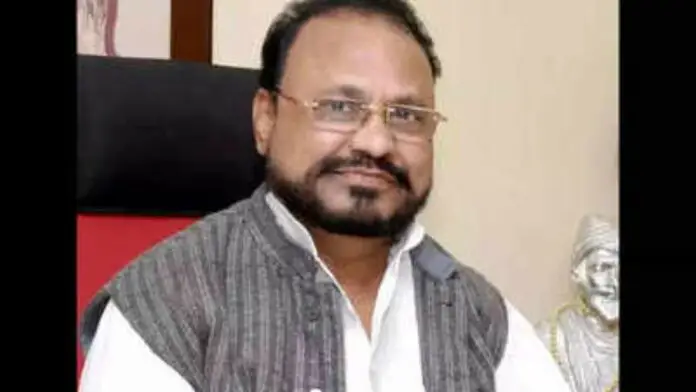
In his plea challenging the summons issued by the Enforcement Directorate (ED) in a money laundering case, Shiv Sena politician and former Member of Parliament Anandrao Adsul was denied ad-interim relief by the Bombay High Court on Friday.
Adsul objected to ED’s proceedings on two grounds: That the ED actions were brought at the request of political rivals with the cooperation of the ruling party at the centre (BJP) And that the money laundering case involving City Co-operative Bank was started when Adsul submitted a complaint with the Economic Offences Wing (EOW).
On behalf of Adsul, advocate Abhinav Chandrachud revealed that the ED procedures were started when Ravi Rana, the husband of Navneet Kaur, a BJP MP, filed a complaint.
The Bombay High Court had invalidated and confiscated Rana’s caste certificate on the grounds that it was obtained through “systematic fraud” in response to petitions, including one by Adsul, which was later stayed by the Supreme Court.
Adsul filed an urgent application with the High Court, requesting a stay on the summons and any outstanding warrants against him.
He further requested that the ED issue no coercive action directives against him.
Chandrachud claimed that Rana filed the complaint in revenge for Adsul’s challenge to his wife’s caste certificate.
It was also claimed that the summons were issued to Adsul on days when the High Court and Supreme Court were hearing the caste certificate case.
The ED had already issued three summonses, which were the subject of the current petition’s challenge.
He emphasised that Adsul’s report to EOW was the first time the case of money laundering was brought to light.
He further requested that the ED issue no coercive action directives against him.
They are taking action against me based on my complaint!” According to Chandrachud.
Chandrachud also requested a copy of the Enforcement Case Information Report, which has yet to be sent to him in accordance with the Code of Criminal Procedure’s rules.
The plea was contested by Additional Solicitor General Anil Singh and Advocate Shreeram Sirsath, who asked the Court to consider Adsul’s behaviour when the summons was issued to him.
Singh claimed that the ED’s probe into the money laundering case includes tracing the proceeds of crime. As a result, any party implicated in the laundering of criminal proceeds was to be probed.
Singh further argued against providing a copy of the ECIR because the ground was not raised in the petition.
When Justices SS Shinde and NJ Jamadar remarked that they were not inclined to provide relief, Chandrachud contended that the summons was unclear as to why Adsul was summoned, and hence there was always a fear of arrest.
The Bench responded by pointing out that an earlier ED summons contained a list of papers that were requested from Adsul, indicating the summons’ objective.
The Court allowed Chandrachud time to add appropriate reasons to the petition and scheduled a hearing for October 8, 2021, at Chandrachud’s request.








